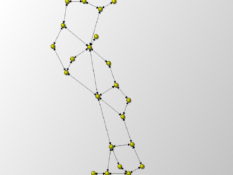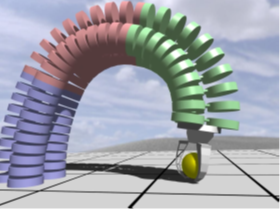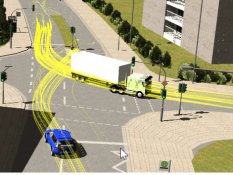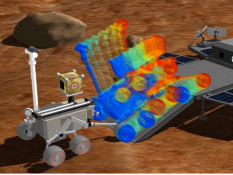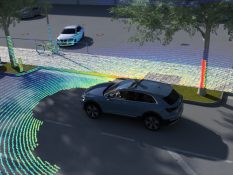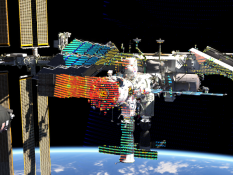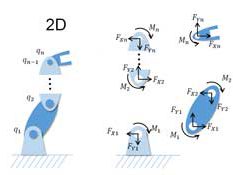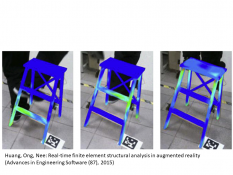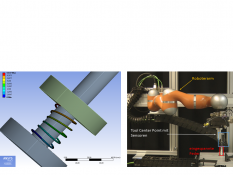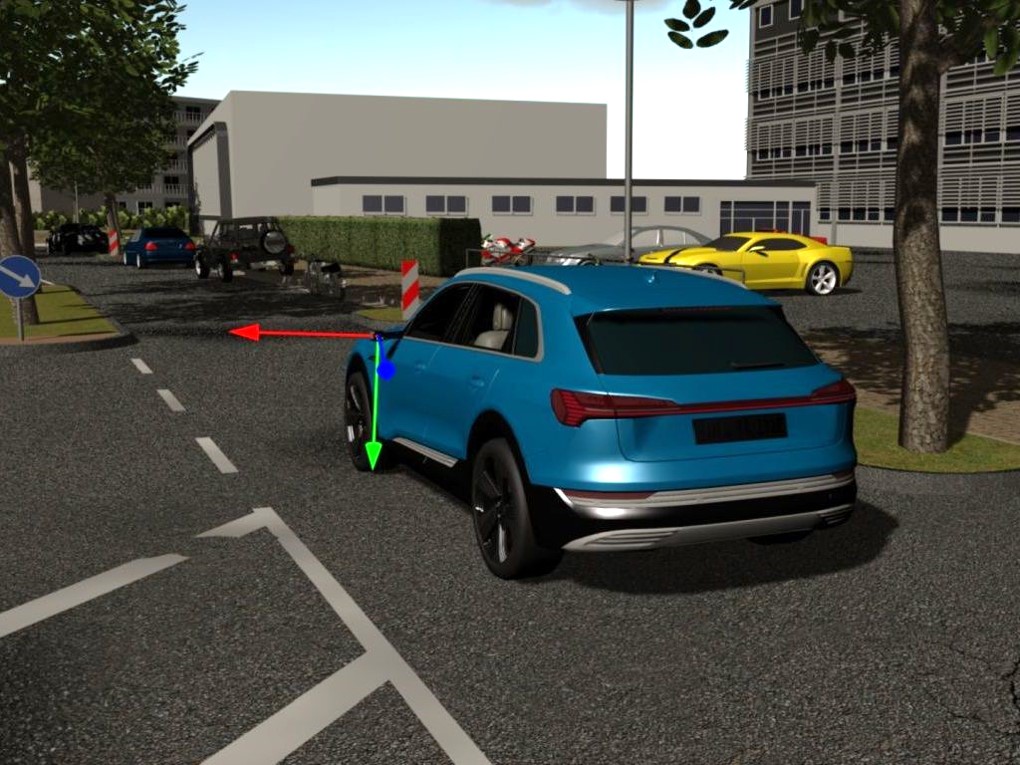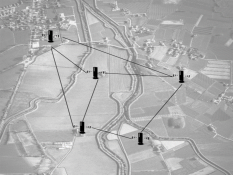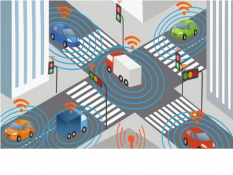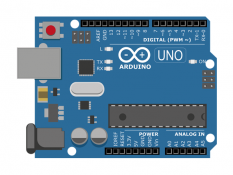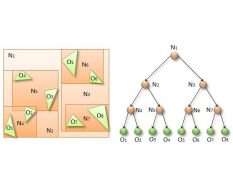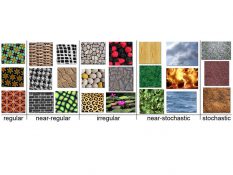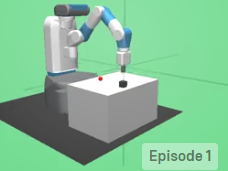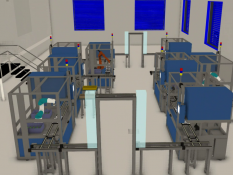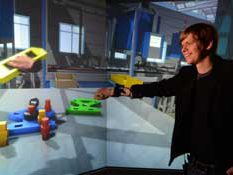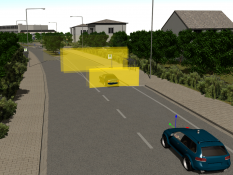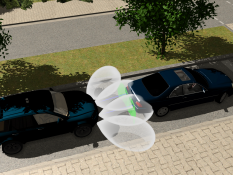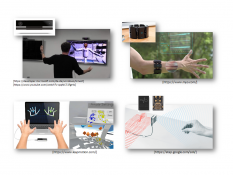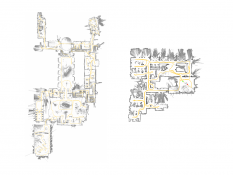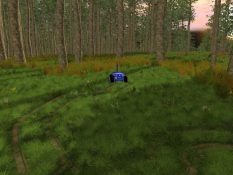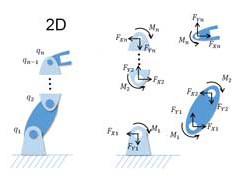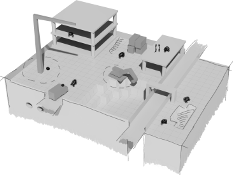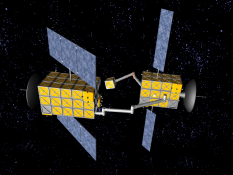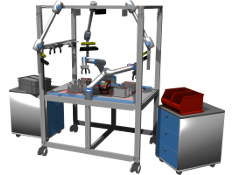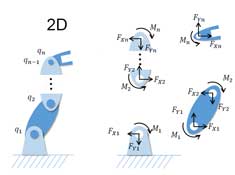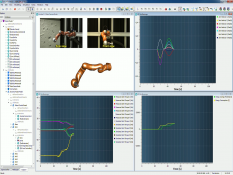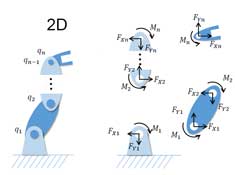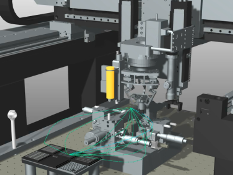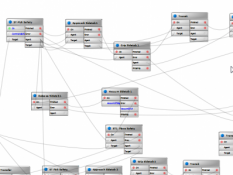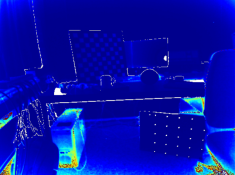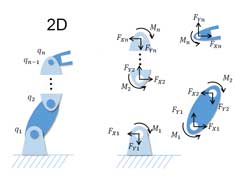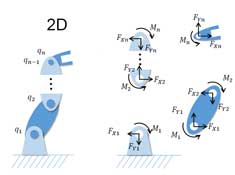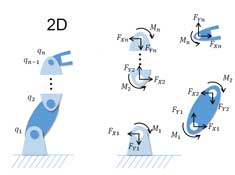Bachelor/Master Thesis: „Simulation with AI for Automotive scenarios: Evaluation of synthetic data“
Autonomous vehicles rely on Artificial Intelligence (AI) to perform many tasks that are required for the vehicle to correctly navigate in its environment. This AI (e.g. machine learning algorithms) requires training to be able to function correctly. However, the training is usually done with large amounts of real data (datasets) which are generally costly to generate. As part of the research involving the use of synthetic data to complement or replace real data in AI training, it is important to be able to measure the “realness” of simulated sensor data. For example, in the image shown below, one could say that the realness is relatively high. But what defines this realness? are AI frameworks also affected by this realness? how can an improvement in realness be measured? These are a few of the questions that this research should aim to answer.

Example of an image created with Unreal Engine 5, DLSS and other AI tools to improve image quality (Source: NVIDIA)
This should be accomplished by using metrics that allow the comparison with real data to find similar properties and possible correlations with realness, to strand away from subjectiveness in the quality of the synthetic data. For this, the following subtasks are necessary:
- Literature research with focus on computer vision, simulation realism.
- Generation of a virtual scenario in VEROSIM. Generation of simulated sensor data with different quality (e.g. Rasterization and Ray tracing) and through different methods (classic and AI).
- Conceptualization of methods for the evaluation of the realness of simulated sensor data.
- Inplementation of the evaluation method (e.g. as a plugin of the 3D simulation software VEROSIM).
- Use of representative AI algorithms to test the performance of synthetic data and contrast to realness evaluation.
Desirable goals would also be:
- Evaluation of the influence of different simulation parameters in the realness of the data.
- Generation of a catalogue of parameters that define realness.
Keywords: Autonomous driving, Simulation enhancement with AI, Image realness
Supervisor: Jiménez
Weitere Arbeiten


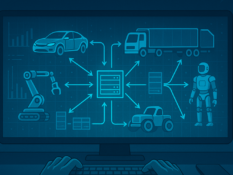
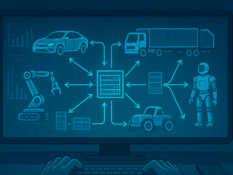
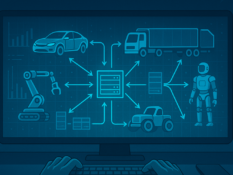
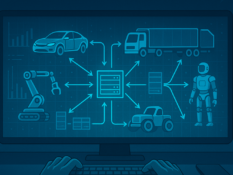

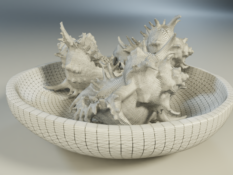
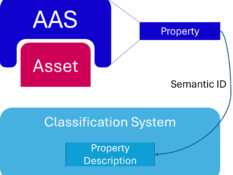
Klassifikationssystem für Merkmale Digitaler Zwillinge auf Basis der Industrie 4.0-Verwaltungsschale
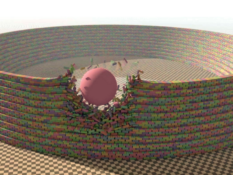
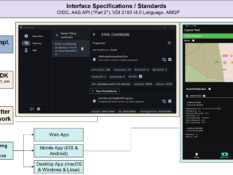


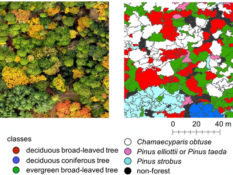




Implementation of an Accelerated Projected Gradient Descent Solver for Multibody Dynamics Simulation
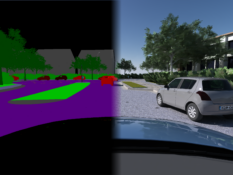
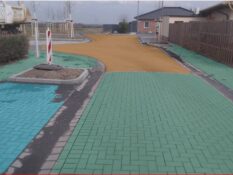



MA: Automatisierung der Verhandlung von digitalen Nutzungsrechten durch Self-sovereign Digital Twins












